In an increasingly interconnected digital world, gendered disinformation, misinformation, and hate speech are becoming increasingly prevalent, targeting individuals and communities based on gender, race, and other defining characteristics. Gender-based online violence aids and abets impunity for crimes against journalists, as online violence against journalists frequently translates into offline harms, including murder with impunity. Crucially, online violence is symptomatic of a troubling environment where legal harassment and persecution of independent journalists is enabled.
As part of a multi-stakeholder response to these concerning trends, the Association of Media Women in Kenya (AMWIK) in collaboration with UNESCO organized a webinar on combatting gendered disinformation and hate speech on digital platforms in Kenya under the EU/FPI-funded Social Media 4 Peace (SM4P) project. The webinar brought together stakeholders from government, media associations/organizations, civil society organisations, media outlets, youth networks, academia, and technology networks, with the shared goal fostering structured collaboration to combat disinformation, hate speech and other related harms on digital platforms and social media.
Participants discussed challenges in Kenya’s digital media landscape and the impact and consequences of online disinformation and hate speech campaigns that exploit gender-related narratives. Online campaigns frequently employ misogyny and discriminatory content to spread false information and tarnish the reputation of women.
Hon. Naisula Lesuuda, the Member of Parliament for Samburu West, who graced the occasion as the Guest Speaker, shared her personal experiences and emphasized the negative impact of gendered disinformation and hate speech on women and gender equality. “It reinforces prejudice, perpetuates gender-based violence and undermines the hard-fought rights and gains of the feminist movement,” she shared.
Hon. Naisula’s sentiments were echoed by Patience Nyange, the Executive Director of AMWIK, who expressed concerns about the profound effects of gendered disinformation. “This vice jeopardises women’s safety and dignity,” she said, “and undermines the fundamental principles of free expression and digital equity that we hold dear.”
John Okande, Programme Officer at UNESCO gave an overview on gendered disinformation and hate speech, highlighting how digital platforms have enabled weaponization of these harms social and political objectives. He challenged participants to be engage and collaboratively come up with mechanisms and develop recommendations that would possibly help mitigate these phenomena, which continues to escalate.
An expert panel discussion was held with various experts, including Josephine Nkuubi (Journalist), Jane Kinyanjui (Communications Authority), Victor Bwire (Media Council of Kenya), Nancy Booker (Aga Khan University), Kagwiria Mbogori (Lawyer), and moderated by Miriam Beatrice (Paradigm Initiative). They discussed the causes and effects of gendered disinformation and hate speech, focusing on solutions specific to Kenya. The panelists also emphasized the importance of legal and regulatory frameworks, along with clear guidelines and penalties for those spreading harmful content.
The webinar highlighted media and information digital literacy competencies as a critical and important element for countering the spread of disinformation and hate speech on digital platforms. It was noted that related training and awareness campaigns would help empower not only women but other stakeholders and citizens to respond to these harms.
Above all, the discussions agreed that meaningful collaboration between media organisations, government agencies and civil society are key to developing effective strategies and interventions to combat gendered disinformation and hate speech on digital platforms.
UNESCO shared a variety of educational and advocacy resources on gendered disinformation and hate speech online, including a series of UNESCO-commissioned global studies on online violence against women journalists, UN Secretary-General António Guterres “Our Common Agenda” policy brief on Information Integrity on Digital Platforms, and UNESCO’s Global Guidelines for the Governance of Digital Platforms, published in November 2023. These resources offer actionable recommendations for practitioners to safeguard freedom of expression and access to information in their respective fields.
UNESCOs Social 4 Media Peace project funded by the European Union seeks to strengthen the resilience of civil society to potentially harmful content spread online, while protecting freedom of expression and contributing to the promotion of peace through digital technologies.

